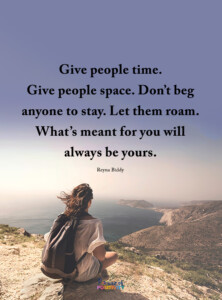We all know that a bad night’s sleep can leave us feeling groggy and irritable. But did you know that there’s a more profound connection between sleep and loneliness? Research shows that sleep difficulties can contribute to feelings of social isolation, while loneliness itself can worsen sleep quality. This cycle doesn’t just affect how we feel; it can have serious long-term health consequences.
Understanding the intricate relationship between sleep and loneliness is essential for breaking the cycle and improving both our emotional and physical well-being.
In this article, we will explore how poor sleep fuels loneliness, how loneliness disrupts sleep, and what steps you can take to improve both for a healthier, happier life.
How Sleep Problems Contribute to Loneliness
It might seem strange at first, but sleep plays a crucial role in our ability to form and maintain social connections. Even when they are in the company of others, people who have trouble sleeping are more likely to feel lonely. Why does this happen?
The Impact of Poor Sleep on Social Interaction
When we don’t get enough rest, it’s not just our bodies that suffer—our emotional resilience also takes a hit. Sleep deprivation affects cognitive function, making it harder to interpret social cues and engage in meaningful conversations.
As a result, sleep-deprived individuals are more likely to withdraw from social situations and feel disconnected from those around them.
The effects are cumulative. The more nights of poor sleep someone experiences, the greater the likelihood that they’ll start feeling isolated. Sleep-deprived individuals also tend to be more irritable and emotionally sensitive, which can make it harder to maintain positive relationships. Over time, this social withdrawal can lead to deepening feelings of loneliness.
Loneliness in Insomniacs and Sleep-Deprived Individuals
Chronic insomnia has been closely linked to loneliness. When people are unable to sleep well for prolonged periods, they often find themselves withdrawing from social activities, and becoming more isolated.
Loneliness is a common side effect of insomnia because individuals with sleep disorders struggle with daytime energy levels, making it difficult to engage in social activities or keep up with relationships
Furthermore, poor sleep impacts our emotional regulation. Sleep-deprived individuals are more likely to perceive others as unfriendly or less approachable, further driving social isolation. This highlights the cyclical nature of sleep and loneliness—sleep deprivation leads to loneliness, and loneliness can worsen sleep problems.
The Vicious Cycle: How Loneliness Affects Sleep Quality
Just as poor sleep can exacerbate loneliness, feelings of loneliness can disrupt sleep. Loneliness triggers a physiological stress response in the body, which makes it harder to relax and fall asleep. This stress, which often manifests as anxiety, has profound effects on sleep quality.
Stress, Anxiety, and the Loneliness Loop
When individuals experience loneliness, their bodies perceive it as a threat. This activates the “fight or flight” response, elevating levels of cortisol and adrenaline. While these hormones are essential for handling emergencies, their constant presence, triggered by loneliness, can prevent the body from settling into the relaxed state necessary for sleep.
People who experience loneliness often find themselves tossing and turning at night, their minds racing with anxious thoughts.
This inability to relax not only delays sleep but can also cause fragmented sleep, where individuals wake up frequently throughout the night. Over time, the lack of deep, restorative sleep further compounds feelings of loneliness and social anxiety.
Loneliness Distorts Sleep Perception
Interestingly, research also suggests that people who feel lonely are more likely to report feeling tired or unrested, even when they’ve had a full night of sleep.
This suggests that loneliness affects not just sleep quantity but also how individuals perceive the quality of their sleep. This misperception can lead to heightened feelings of fatigue and emotional exhaustion, perpetuating the cycle of sleep and loneliness.
The Health Consequences of Sleep and Loneliness
Both poor sleep and chronic loneliness carry significant health risks. When combined, the effects can be even more damaging. Each condition independently contributes to mental and physical health challenges, but together, they can create a powerful negative feedback loop that accelerates health decline.
Sleep Deprivation and Loneliness Increase Health Risks
Sleep deprivation is closely associated with a wide range of health problems, including an increased risk of heart disease, diabetes, high blood pressure, and even stroke.
When individuals don’t get enough sleep, their immune system weakens, making them more susceptible to infections and illnesses. Sleep deprivation also triggers inflammation in the body, which is a major contributor to many chronic diseases.
Loneliness too has been linked to numerous health risks. Research has shown that individuals who suffer from chronic loneliness are more likely to experience high blood pressure, obesity, depression, and anxiety. Loneliness is as harmful to health as smoking 15 cigarettes a day.
The combination of poor sleep and loneliness is particularly harmful because both conditions feed into each other. Sleep-deprived individuals tend to feel lonely, and lonely individuals tend to sleep worse. Together, these conditions can lead to faster health decline and even early mortality if left unaddressed.
Breaking the Cycle: Strategies for Better Sleep and Social Connection
The good news is that the vicious cycle of sleep and loneliness can be broken. With the right strategies, it’s possible to improve both sleep quality and social connectedness, leading to better mental and physical health.
Improve Sleep Hygiene
Sleep hygiene refers to the practices that create an environment conducive to restful, restorative sleep. By improving your sleep hygiene, you can support your body’s natural sleep-wake cycle and reduce the impact of loneliness on your ability to rest.
- Stick to a regular sleep schedule: Going to bed and waking up at the same time every day can help regulate your body’s internal clock.
- Create a calming bedtime routine: Engage in relaxing activities before bed, such as reading, meditation, or listening to calming music.
- Limit your screen time because the blue light that smartphones and tablets emit can interfere with melatonin production. Avoid using screens for at least an hour before bedtime to ensure better sleep quality.
Strengthen Social Bonds
One of the best ways to combat loneliness is by making an effort to reconnect with others. While it may feel daunting at first, even small interactions can have a big impact on your emotional well-being and can help break the cycle of loneliness and poor sleep.
- Reach out to loved ones: Regular communication with friends and family, even through phone calls or text messages, can provide a sense of connection.
- Join social groups: Participating in community activities, such as book clubs, fitness classes, or hobby groups, can help create a sense of belonging.
- Volunteer: Helping others can boost your mood and introduce you to new people, strengthening your social network.
Practice Mindfulness and Relaxation
Mindfulness practices like meditation, yoga, and deep breathing exercises can help reduce the stress and anxiety associated with loneliness. These practices help calm the mind and prepare the body for better sleep.
Studies show that individuals who practice mindfulness regularly experience improved sleep quality and a stronger sense of social connection.
Conclusion: The Importance of Addressing Sleep and Loneliness
The connection between sleep and loneliness is undeniable. Poor sleep can exacerbate feelings of loneliness, and loneliness can disrupt the restful sleep we need to feel energized and connected. Left unchecked, this cycle can lead to serious health problems and significantly affect quality of life.
However, by improving sleep hygiene, reaching out to others, and incorporating mindfulness practices into your routine, it’s possible to break the cycle and create a healthier, more fulfilling life.
For more insights into sleep, mental health, and personal growth, visit Positive Kristen’s offerings for personalized strategies to enhance your well-being. You can also explore additional wellness resources at Power of Positivity.
The post The Surprising Link Between Sleep and Loneliness appeared first on Power of Positivity: Positive Thinking & Attitude.










